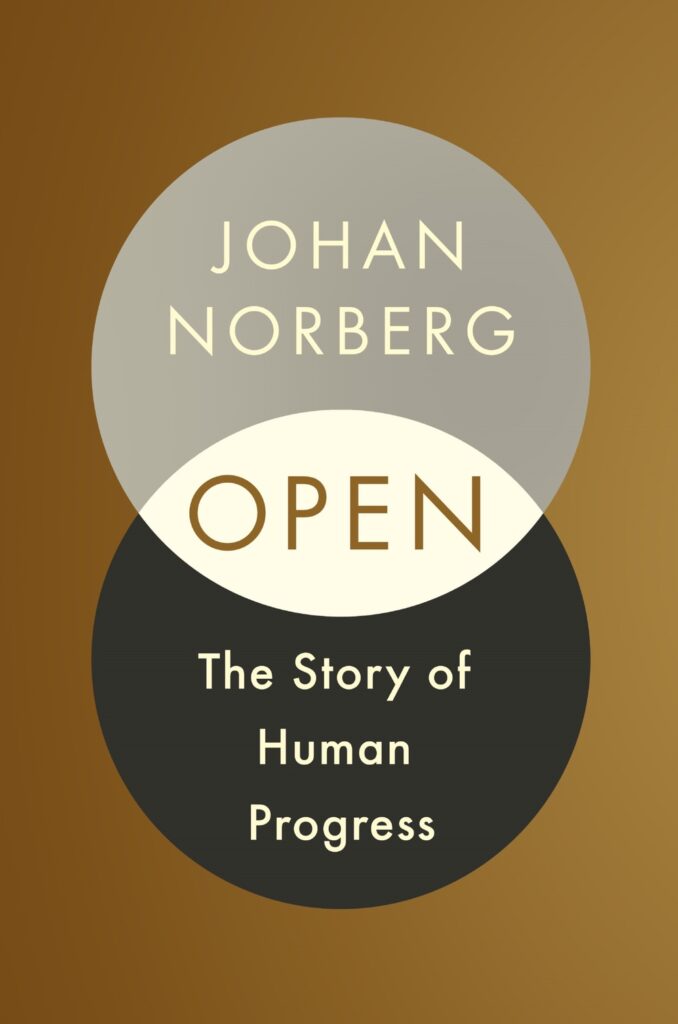Sharing my learnings from the book, Open by Johan Norberg
Open by Johan Norberg
Humanity’s embrace of openness is the key to our success. The freedom to explore and exchange – whether it’s goods, ideas or people – has led to stunning achievements in science, technology and culture. As a result, we live at a time of unprecedented wealth and opportunity. So why are we so intent on ruining it?
From Stone Age hunter-gatherers to contemporary Chinese-American relations, Open explores how across time and cultures, we have struggled with a constant tension between our yearning for co-operation and our profound need for belonging. Providing a bold new framework for understanding human history, bestselling author and thinker Johan Norberg examines why we’re often uncomfortable with openness – but also why it is essential for progress. Part sweeping history and part polemic, this urgent book makes a compelling case for why an open world with an open economy is worth fighting for more than ever.

- according to the author, free, unregulated trade between nations is the keystone of humanity’s present prosperity. Eventually, problems can arise that interrupt the flow of free trade (e.g., plague, foreign army). Such events can cause people to panic & for fear to take control. History tells us that we need openness to flourish. So it’s time to learn from our mistakes and make sure we don’t give in to fear
- three things that set human beings apart from other life forms on the planet: intelligence, language & cooperation. Cooperation is key to our evolution. Cooperation & the transfer of knowledge and skills among people would continue to be at the heart of human advancement.
- through cooperation, division of labor and the building of cities, people generated so much wealth that they had to start building walls in order to protect that wealth. Studies show that the bigger the city, the more productive & innovative it is. With division of labor & efficient farming, people were finally free to devote time to their specialty – and the rest of the city could reap the benefits
- many places the world over have followed a similar pattern. First, a time of openness and prosperity occurs, followed by something bad, like the appearance of an invading army. This gets blamed on the spirit of openness and so society closes up and enters a dark period. This lasts until enough people call for a return to the freedom and well-being that came with open borders, trade and tolerance
- in Europe, openness took hold as new trade possibilities emerged
- The US quickly became a hotbed of innovation. This was in part through its founding principle of being a nation open to immigrants, who were free to practice their religion of choice and pursue their own ideas
- Being part of a system of free trade is not a zero sum game where every part wins. The reality is much more complex. When something is traded, that doesn’t mean it can’t be traded again, with someone else and it doesn’t mean that a product can’t create unforeseen value further down the road. This is because value from free trade is ongoing and the benefit a nation gets from being part of the process can’t be determined simply from the face value of individual trade agreements.
- the human brain isn’t necessarily wired for openness and inclusivity. In fact, whenever we’re faced with thoughts about our own mortality, our fears of outsiders only intensify. Ironically, it’s through a continued commitment to openness that our problems are solved.
- authoritarianism is also rooted in human impulse – but it doesn’t help. Authoritarian leadership doesn’t usually lend itself to the kind of trial and error entrepreneurship that innovation requires
- the problems facing the world today can only be solved through openness.
- while many of us like to imagine that things were better or simpler in the past, this is just an illusion. People around the world are infinitely better off than they were in the 1950s. By saying no to authoritarianism and looking to other cultures for ideas and inspiration, we can continue to use openness to solve our problems and make the world an even better place to live.


Leave a Reply